#Roman Madyanov
Explore tagged Tumblr posts
Text


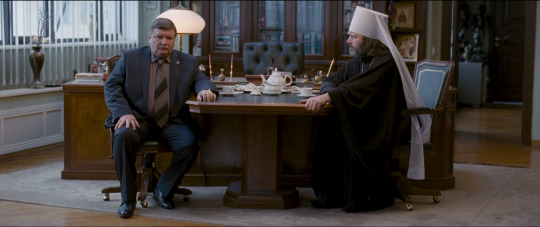

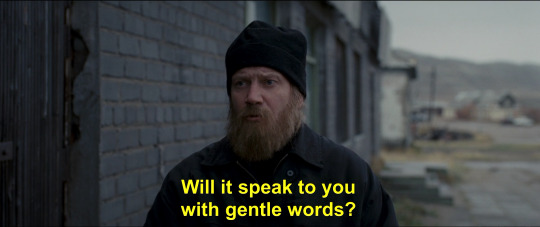

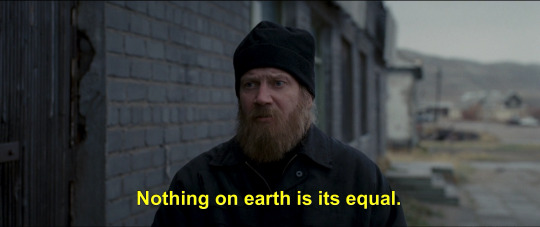
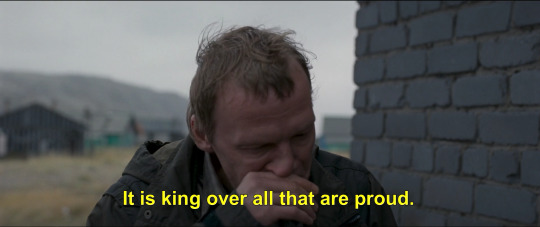

Левиафан, 2014
#Левиафан#leviathan#leviafan#crime#drama#andrey zvyagintsev#oleg negin#aleksey serebryakov#roman madyanov#valeriy grishko#igor sergeev#corruption
5 notes
·
View notes
Text
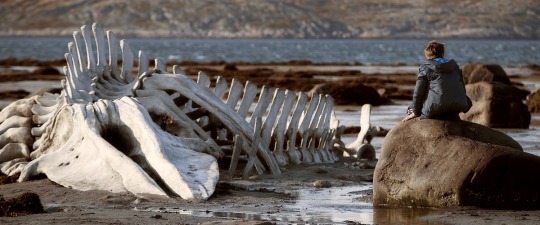
Leviathan (Andrey Zvyagintsev, 2014)
Cast: Aleksey Serebryakov, Elena Lyadova, Vladimir Vdovichenkov, Roman Madyanov, Anna Ukolova, Aleksey Rozin, Sergey Pokodaev. Screenplay: Oleg Negin, Andrey Zvyagintsev. Cinematography: Mikhail Krichman. Production design: Andrey Ponkratov. Film editing: Anna Maas. Music: Andrey Dergachev, Philip Glass.
Leviathan was the official Russian entry in the Oscar foreign film category and there was controversy in Russia over its portrayal of the hard-drinking Russians, the corrupt bureaucracy, and the complicit Russian Orthodox Church. It's a truly astonishing film when you consider all of these things, and that the villain of the film, the grasping, criminal major (played to the creepy depths by Roman Madyanov) presides over his malfeasance under a watchful portrait of Vladimir Putin. At one point in the movie, the protagonist, Kolya (Alexey Serebryakov), and his friends engage in some drunken target practice that involves shooting at pictures of Brezhnev, Gorbachev, and other former communist leaders. One of the group says he has pictures of some more recent targets once those are gone. Cynicism and bitterness prevail throughout the film, and with its dark humor and deep-rooted hopelessness it reminds me of hard-core American film noir. Through it all, though, there's the soiled beauty of the Russian landscape, splendidly filmed by Mikhail Krichman. There are some chilling moments, such as the monotone readings of the court's judgment against Kolya in his suit against the mayor and the even more devastating judgment against Kolya at the film's end. And it's heart-wrenching to watch the destruction of Kolya's home from inside, with furnishings that we have come to know from earlier scenes in the movie still in place, being swept away by the jaw of wrecking machine.
9 notes
·
View notes
Photo










The Monk and the Demon (2016)
#the monk and the demon#nikolay dostal#timofey tribunstev#georgiy fetisov#boris kamorzin#roman madyanov#talks
7 notes
·
View notes
Photo



Левиафан [Leviathan] (Andrey Zvyagintsev, 2014)
#Левиафан#Leviathan#Andrey Zvyagintsev#Zvyagintsev#2010s movies#2010s cinema#Russian drama films#Russian movies#Russian cinema#Russia#corruption#cinema#movies#Aleksei Serebryakov#Elena Lyadova#Vladimir Vdovichenkov#Roman Madyanov#Oleg Negin#crook#crooks#Russians
4 notes
·
View notes
Photo

Happy birthday, Roman Sergeevich🎉🎉💥 Creative positivity and a lot of interesting new roles, all the best!!! 🎁📍
#Роман Мадянов#Roman Madyanov#алексеймолянов#моляновалексей#alexeymolyanov#molyanovalexey#www.alexeymolyanov.com
1 note
·
View note
Photo

#385 #Leviafan (Leviathan)
#Leviathan#Oscar#Andrey Zvyagintsev#Oleg Negin#Aleksey Serebryakov#Elena Lyadova#Vladimir Vdovichenkov#Roman Madyanov
2 notes
·
View notes
Text
Russian movies – to understand the complex Russian soul
A short list of movies that are a good place to begin your acquaintance with Russian cinematography.
You're unlikely to find them on Netflix, perhaps on third-party sites and not always with subtitles, but either way - Who seeks, always finds.
The Return (2003)
Andrei Zvyagintsev's drama about a returning father, his sons, and a mysterious box.

A prodigal father (Konstantin Lavronenko) returns to a provincial family and takes his two sons on a camping trip to the lake with vague goals. The debut of an unknown director, shot for little money by a minor producer, suddenly won at the Venice Film Festival.
Peculiarities of the national hunt (1995)
The first part of a triptych about harmless hunters.
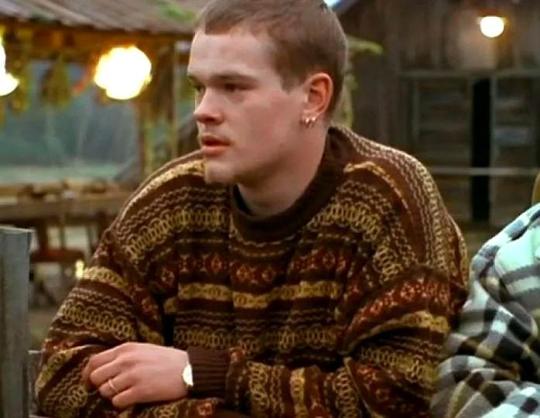
A young Finn (Ville Haapasalo), eager to learn about Russian hunting habits, joins a company gathered in the woods - but all that awaits them ahead is unabated drunkenness. On the one hand, a collection of hysterically funny anecdotes in the "hunting accident" genre, on the other – a study of the national character, judging by the tremendous popularity of the film, more than successful.
Brother (1997)
Alexei Balabanov's crime drama - iconic image of the 90s.
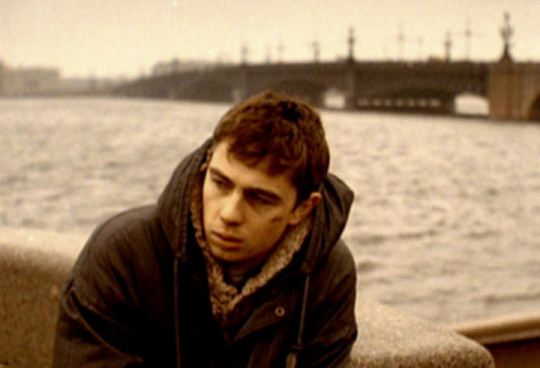
Dembele Danila Bagrov (Sergei Bodrov) arrives in St. Petersburg to visit his brother (Viktor Sukhorukov), who has become a hired killer. "The player is real, but dressed like a sucker", "Beautiful city, but a province", "I don't really like Jews", and, of course, "You're not my brother, you black-assed scum". What can I say - the main Russian film of the 90s. And together with the sequel, even two.
The Island (2006)
A spiritual drama with Mamonov as a monk.

An eccentric old man (Pyotr Mamonov) heals pilgrims and dreams of redeeming the sin committed during the war. Lungin's slightly unexpected, at the time, incursion into God-seeking territory, establishing Mamonov in his new role as Russia's hero. As part of the restoration of spirituality, the film was carried on its hands, showered with awards and shown on Christmas on the central channel.
Hipsters (Stilyagi) (2008)
Todorovsky's retro-musical about the '50s, with songs from the '80s and '90s.
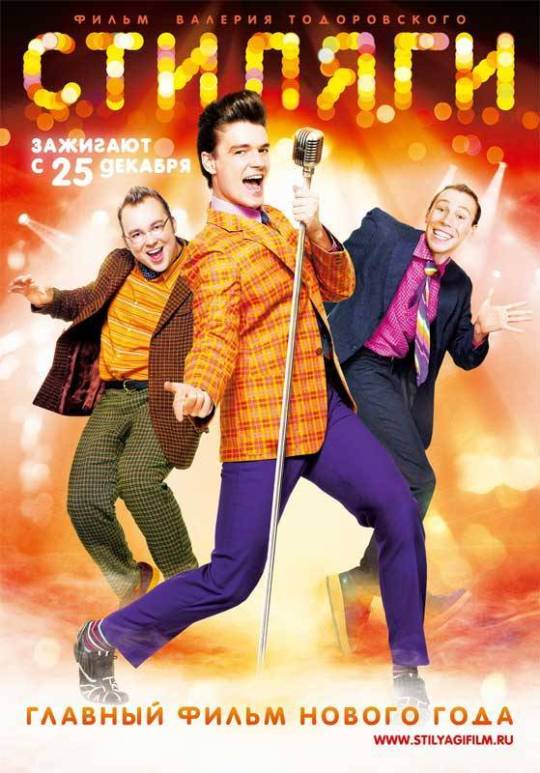
Moscow of the '50s, a Komsomol member (Anton Shagin) falls in love with a fashionable girl (Oksana Akinshina) and becomes a dandy. A sprawling musical with crowd-pleasers, dances, and an unexpected rendition of twisted '80s rock hits. The box office budget, enormous by Russian standards, did not pay off. On the other hand, the film received wide praise in the West, where it was released under the title Hipsters, and Valery Todorovsky became the leading specialist in Soviet retro films a few years later.
What Men Talk About (2010)
Talking play by Quartet I transferred to the motion picture screen.

Not the first, but one of the most popular films, remade from the plays of Moscow's Quartet I. A brief escape from the office routine in the vein of "Stag in Vegas", the music of Bi-2 (the heroes of the entire movie strive to get to the concert of the band, oddly enough, held in the Ukraine), Zhanna Friske and, of course, sex through the eyes of infantile middle-aged men. The result is a great movie about what men in Russia think and talk about.
Leviathan (2014)
Unwashed Russia and an Oscar nomination.

The story of the confrontation between a car mechanic (Alexei Serebryakov) and the mayor of a northern town (Roman Madyanov), who decided to annex the worker's house, in which he lives with his family: his wife (Elena Lyadova) and son. Another parable by Andrei Zvyagintsev about an unwashed Russia in which he decided to cross an ancient tragedy with a domestic drama, for which he won a Golden Globe, a prize for screenplay at Cannes and a nomination for an Oscar. As is often the case with our sharply social statements, cinema has divided society. Not for the first time and, one would think, not for the last.
Loveless (2017)
Andrei Zvyagintsev's psychological thriller.

A divorcing couple (Maryana Spivak and Alexei Rozin) has a son who disappears (Matvey Novikov). They try their best to find him, but the further they go, the more futile their efforts become. Inspired by Bergman's Scenes from a Family Life, Zvyagintsev has created a psychological thriller in which the missing boy acts not only as a Hitchcockian MacGuffin, around whom the plot revolves, but also as the meaning of life that the characters are so feverishly searching for, because everything mattered only when he was around.
Arrhythmia (2017)
The story of two married doctors who missed the meaning of their relationship.
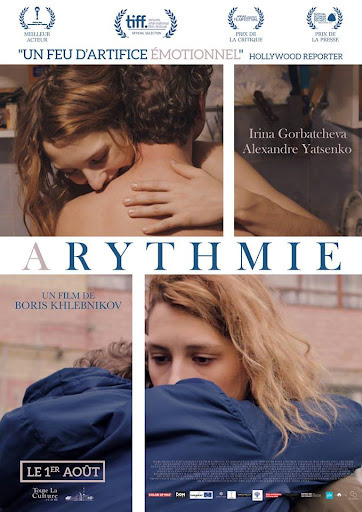
The most sensual film of Boris Khlebnikov's career, which was applauded so wildly at the festival in Sochi, as if every audience member in the audience had really caught the rhythm of this "Arrhythmia." The simple story of two married doctors who, at some point between their daily exploits at work, miss the meaning of their relationship.
190 notes
·
View notes
Text
#854: ‘Leviathan’, dir. Andrey Zvyagintsev, 2014.
A lot of the films on this list are epic, and many of those are... swollen: too long, too inflated, and too exaggerated. Leviathan is none of those things, and it’s also one of those rare films that can be described as ‘statuesque’. This is obvious from its opening moments, where we see a string of images of the coast of the corrupt Russian village where the film takes place, any natural noise drowned out by the piercing score composed by Philip Glass. The first line of dialogue is not until five minutes in, and even then it’s terse and devoid of deeper significance - Kolia (Alexei Serebriakov) announcing that he needs a smoke.
The characters in this film are solid statues of human beings, but their interiors are crumbling. Kolia’s land is being bought out from under him by a corrupt mayor (a perfectly and pettily devilish performance by Roman Madyanov), who turns up drunk to threaten him and yet sails through his court proceedings with ease. Despite the urging of Kolia’s second wife, Lilya (Elena Lyadova), Kolia brings in his old friend Dima (Vladimir Vdovichenkov), a lawyer from Moscow, to try and mitigate the ordeal. Dima is thoughtful and courageous, suppressing Kolia’s more violent impulses when he can, but he is still unable to make a dent in Mayor Vadim’s brittle-seeming armour.
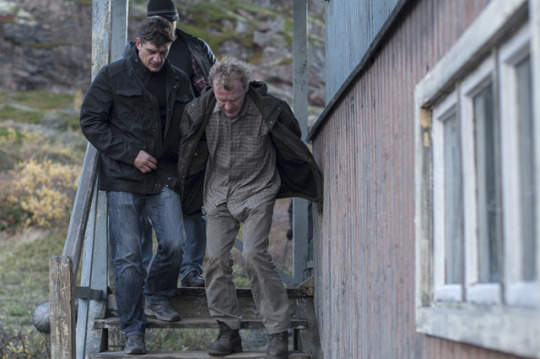
What at first seems like a typical story of small man taking on big government is rapidly undercut in a number of small ways, and the end result feels like a contemporary Biblical parable - the book of Job, perhaps, if Job wasn’t a particularly likable individual. The problem for Kolia, Lilya and Dima is that they are individual humans, and because of this they are damned on both an individual and systemic level. Their personal failings - their lust, their anger, and their cowardice - make it impossible to confront their situation in a unified way, and the corrupt legal system is designed to exploit their weaknesses while protecting the myriad weaknesses of those in power. Nobody at the office is authorised to release someone from prison, even for a trumped-up offense. The drunken mayor arrives in a spotless car, protected by a seven-foot-tall bodyguard with a close-shaven head. Even when Vadim is rattled by the amount of incriminating information Dima has been able to gather on him, Vadim has three coldly capable henchmen who have the mayor swaddled in a protective layer.
The system is perhaps at its most monolithic in those moments where Kolia and Dima are in the courtroom. While a typical ‘David-versus-Goliath’ film like The Castle would simply show the verdict, in Leviathan the court’s findings are read in all their impenetrable glory. The legal jargon that everyone hides behind is incomprehensible, and it shows what Zyvagintsev is trying to prove: that unlike in the story of Job, the word of neither man nor god is on Kolia’s side. It’s not enough for the court to reject his appeal; there must be three minutes of meaningless and obfuscatory explanation to rub it all in. The representatives of God in Leviathan are Russian Orthodox bishops, who have their own reasons for continuing Kolia’s suffering too.
Writing about Leviathan at Cannes, Peter Bradshaw suggests that Kolia in this film is not Job, standing in the face of God’s will and trying to draw out the Leviathan with a fishhook, but rather the beached whale that forms the film’s most striking image - a figure with “all the burdensome size but none of the power: massive, inert”.
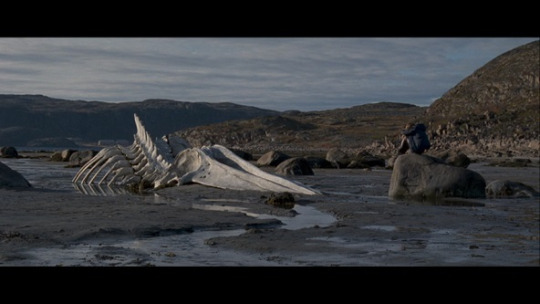
Leviathan as a film can feel massive and inert, too. It’s tackling a topic that is small on paper but overwhelming on the screen, telling a story that is simultaneously a love triangle, a family drama, a Biblical tragedy, a courtroom procedural, a mystery thriller, and a parable of corruption. The characters are people who make poor choices while trying to do the right thing, but these choices reveal how inadequate they are in the face of the larger task. Kolia and Lilya’s marriage crumbles; Dima is driven back to the city. There is death and tragedy and imprisonment, like a good Dostoyevsky novel, and even the most kind characters have harshness as their default setting.
Zyvagintsev also wants to keep us at a distance from the action, both in his decision to make the characters somewhat despicable and in his directing choices, too. Most key scenes take place off-camera, lending mystery to some of them and discretion to others. We watch Dima get beaten up through a car windshield that blocks all sound. When we hear people talking, we very rarely get an understanding of their emotions, and when we see their emotions we never hear them speak. Lilya makes a decision that changes the world of the film, in both good and bad ways, and yet she says only five words of dialogue in her last fifteen minutes of screentime and still her decision makes a certain amount of clinical sense. It’s like watching a tragic lab trial from behind a clipboard.
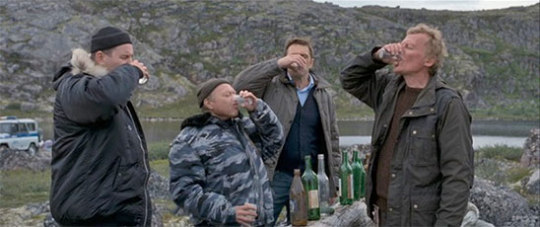
What’s the point of this? Of striving? Why slog onwards in this blue-and-grey wasteland, why be at the mercy of heedless and brutal regimes? As Dima suggests, ‘everything is everyone’s fault’. I think of Kolia as being like a late-act Macbeth: in a position of power that he wants to maintain, but being constantly buffeted by a higher force that wants to balance things out. In Macbeth, that force is arguably fate, but more accurately the whims of classical tragic narrative. In Leviathan, the higher power is the world that gives no shits about the everyday man. Do Kolia and Lilya and Roma and Dima get what they deserve? Do they deserve the endings they get?
No. It’s worse than that. They deserve nothing at all.
4 notes
·
View notes
Text
Quadro dramas no Globoplay para ver em casa
Triste finitude
O austríaco Haneke gosta de jogar a plateia em turbilhões emocionais por meio de narrativas secas e isentas de sentimentalismo. em Amor, tem o mérito de trazer à tona uma história de desenrolar triste e arrasador, sem deixar a trama cair na monotonia. Simples, a história flagra o cotidiano de um casal de octogenários, George (Jean-louis Trintignant, magnífico!) e Anne (Emmanuelle Riva). Durante um café da manhã, Anne não esboça nenhuma reação. A partir daí, Haneke usa elipses para mostrar a finitude da personagem após um derrame.
Mamãe passa pano
Drama romeno, Instinto Materno traz uma personagem dominadora. Cornelia (a excelente Luminita Gheorghiu) é uma senhora da alta sociedade de Bucareste. Ela usa casacos de pele, fuma muito e detesta a nora. Ao saber que seu filho atropelou e matou um adolescente pobre, usa seu poder para livrá-lo de um processo. O trintão Barbu (Bogdan Dumitrache), contudo, está cansado da superproteção da mãe, quer ter uma vida independente e se sente arrasado pelo que fez. Nas entrelinhas do roteiro, são enfocados a luta de classes, o tráfico de influência e a corrupção.

Instinto MaternoDivulgação/Divulgação
Frio e cruel
No drama Leviatã, do diretor Andrey Zvyagintsev, Dmitri (Vladimir Vdovitchenkov), um advogado de Moscou, vai até a Península de Kola, no extremo norte do país, para ajudar seu amigo Kolya (Aleksey Serebryakov), que teve um terreno confiscado a mando do corrupto prefeito (Roman Madyanov). Como Dmitri possui um dossiê comprometedor do político, não pensa duas vezes para chantageá-lo. Assim começa uma história regada a litros de vodca, traição e morte.
Continua após a publicidade

LeviatãDivulgação/Divulgação
Grande take
Há ousadia e sucesso do diretor alemão Sebastian Schipper em rodar Victoria de uma tacada só, num grande take de mais de duas horas. Embora tenha alguns pontos embaçados no início, a história deslancha pela narrativa hipnótica, vinda de uma câmera em (quase) constante movimento. A trama flagra a espanhola Victoria (papel de Laia Costa) saindo de uma balada de Berlim. Paquerada por Sonne (Frederick Lau), a jovem decide aceitar o convite dele e de seus três amigos para seguir na noite.

VictoriaDivulgação/Divulgação
+Assine a Vejinha a partir de 6,90
Publicado em VEJA São Paulo de 10 de fevereiro de 2021, edição nº 2724
Mais lidas
SaúdeSaúdeMãe de Luciano Hang morre em São Paulo após contrair Covid-19
‘Tom e Jerry’ sai do Cartoon Network por ser ‘politicamente incorreto’; fãs do desenho protestam na web
CidadesCidadesCantor acusa Anderson, do Molejo, de estupro; vocalista nega
CidadesCidadesCom frente fria, tempo em São Paulo deve virar na sexta-feira (5)
Continua após a publicidade
The post Quadro dramas no Globoplay para ver em casa first appeared on Publicidade SP. from WordPress https://ift.tt/3jh6kBy via IFTTT
0 notes
Photo






Левиафан, 2014
#crime#drama#Левиафан#leviafan#leviathan#andrey zvyagintsev#oleg negin#roman madyanov#aleksey serebryakov#strenght
4 notes
·
View notes
Text
Roman Madyanov Bio, Height, Wiki, Age, Wife, Birthday, Parents & Net Worth
Roman Madyanov Bio, Height, Wiki, Age, Wife, Birthday, Parents & Net Worth
Roman Madyanov
Roman Madyanov also known as Roman Sergeevich Madyanov is a famous Soviet and Russian actor. Born on July 22, 1962, the talented actor Madyanov mainly works in the Russian showbiz industry who started a career as a child actor. He made acting appeared in the film ‘Hopelessly Lost’ in 1973.
Full Name Roman Madyanov Nick Name Roman Age (As of 2019) 57 years old Date of Birth (DOB),…
View On WordPress
0 notes
Text
New Post has been published on Sci-Fi Full Movies Streaming
New Post has been published on http://scifistreaming.com/leviathan-2014/
Leviathan 2014
Leviathan 2014
On the outskirts of a small coastal town in the Barents Sea, where whales sometimes come to its bay, lives an ordinary family: Kolya (Aleksey Serebryakov), his wife Lilya (Elena Lyadova) and their teenage son Romka. The family is haunted by a local corrupted mayor (Roman Madyanov), who is trying to take away the land, a house and a small auto repair shop from Kolya. To save their homes Kolya calls his old Army friend in Moscow (Vladimir Vdovichenkov), who has now become an authoritative attorney. Together they decide to fight back and collect dirt on the mayor.
0 notes
Photo










Leviathan (Andrey Zvyagintsev, 2014)
cinematography: Mikhail Krichman
#elena lyadova#vladimir vdovichenkov#aleksei serebryakov#roman madyanov#andrey zvyagintsev#leviathan#leviafan#russian cinema#russia
26 notes
·
View notes
Photo

Madyanov Roman and Alexey Molyanov
0 notes
Text
Leviathan
It is a Russian drama movie set in coastal town Pribrezhny. It is about standing up for one's rights and then have no choice besides giving in to despair. Injustice is the main key here surrounded with pessimism. The movie screams there is not a thing called justice system! Tragedy is everywhere and there is so much drama such as citizen drama, family drama and friendship drama. Oh, also there is massive amount of drinking in the movie. Vodka is the new water! Anyway, the movie is basically a satire which is excellently written, shot and produced.
Kolya is a car mechanic who lives in a modest family-built property on prime real estate with his son Roma and his second wife Lilya. When Mayor Vadim demands to take away the land, Kolya's house and auto repair shop, Kolya and his family feel haunted so Kolya ask his friend Dimitri for help. Dimitri comes to the town to help Kolya and he says that they can beat the Mayor by collecting dirt on him. Dimitri faces Mayor Vadim and tells him to back off by showing the evidence he has on him. Meanwhile, Kolya's wife Lilya and Dimitri have an extramarital affair. When Kolya finds it out, he beats Dimitri and Lilya runs off with Dimitri. She then later comes home the same night. Later, Dimitri is threatened by Mayor Vadim. So Dimitri withdraws himself from the matter between Kolya and Mayor Vadim. Kolya reconciles with Lilya and tries to forgive her, even though he does not fully forgive her. Due to his forgiveness, Lilya is driven by guilt and shame that she commits suicide. Then, Kolya believes that Lilya goes missing and she probably left him for Dimitri. A few days later, her body is found. The news regarding to Lilya's death devastates Kolya which leads him to be an alcoholic. His friends turn their back on him and makes a statement that he might have killed her because he threatened Dimitri and Lilya when he busted them. Although Kolya has done nothing wrong, he gets accused of Lilya's murder and he can not prove his innocence. He gets arrested and sentenced for 15 years in jail according to the justice system which includes friends and helpers of Mayor Vadim. Kolya's so-called friends take care of his son Roma in order to receive childcare money by making it an excuse that they would not let him live in the orphanage. While Kolya is in jail, Vadim torns down the land and Kolya's house and car repair shop. He builds a cathedral over Kolya's property.
The movie shows the real and sad parts of the life. It also shows how one's life can change so much when they are not as powerful as the ones against them. The person, who has money and power, is the real winner of the situation. It also shows that having a hope does not mean that there is really hope. Sometimes, it backfires and leads to total hopelessness. So, there is no justice when you are in a situation like this because courtroom and police are controlled by a corrupted politician. Also, the movie consists of the following elements such as aggression, arrogance, betrayal, crookedness, cynicism, dodginess, drunkenness, hypocrisy, ignorance, injustice, intimidation, shadiness and twisted minds. As the world of Kolya collapses, the storytelling remains to be compelling. It is a very good movie so I get why it was nominated for the foreign language film at the academys. It might win the award.
#leviathan#leviafan#aleksey serebryakov#elena lyadova#roman madyanov#Vladimir Vdovichenkov#movie reviews#2015 oscars movie reviews#review
2 notes
·
View notes
Text
Leviatã | Crítica
“Você pode pegar um Leviatã com um anzol ou amarrar sua língua com uma corda? Ele continuará te pedindo perdão? Ele falará com você em palavras gentis? Nada na Terra é seu igual. Ele é rei de tudo que é orgulhoso.” O Leviatã da impressionante produção do russo Andrey Zvyagintsev não é um gigantesco monstro marinho, mas a imensa cadeia humana de poder que sobrevoa todos nós, pobres mortais. Kolia (
View On WordPress
#Aleksei Serebryakov#Andrey Zvyagintsev#Elena Lyadova#Leviatã#Roman Madyanov#Sergey Pokhodaev#Vladimir Vdovichenkov#Vyacheslav Gonchar
0 notes